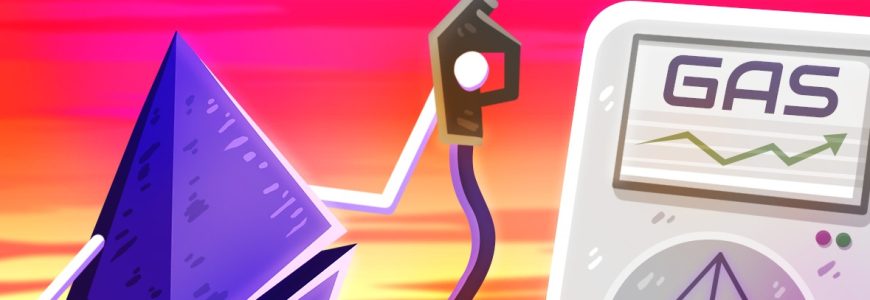When different network participants race to include their transactions in the next block, it’s called a gas war. If you find yourself caught up in one of these wars sometime in the future, here’s how you can come out on top.
The blockchain space is frequently compared to the Californian Gold Rush, with prospectors battling it out for Fuel. These battles are what we like to call gas wars.
During a gas war, network participants compete to secure space in the next block by taking part in a “priority gas auction” or PGA. This involves paying more for gas than the average transaction fee in order to get better positioning in the next block. Oftentimes, the winners of a gas war might end up paying several times the average transaction fee.
Some might say, “Why spend more money on gas?” The answer is to ensure that the transaction is processed by the network quickly. This would be useful for taking advantage of an opportunity that won’t last long or participating in an event where it’s advantageous to be one of the first people there.
Usually, when there’s a “gas war,” it’s because people are vying for entry into something that has limited spots and is high in demand. For instance, this happens a lot during NFT drops or IDOs (initial DEX offerings). With so many people trying to get in on the action, they’re willing to pay extra gas fees to increase their chances of being one of the few who secures a spot.
Gas wars occur when people compete to gain an advantage, like limited access to slot investment opportunities or being the first to sell tokens in a declining market.
If you want to come out ahead in a gas war, the first thing you need to do is accept that you’re probably going to be in one. This means thinking about whether there will be a lot of people trying to get block space when you want to make your transaction.
If you want to avoid a gas war, use our events calendar to find out which days could have high demand for block space. This is especially useful for first-come-first-serve type events that are hosted on the Ethereum network.
If you want to win, be prepared to overspend on gas. Many Web3 wallets will let you change the amount you pay for gas, so take advantage of this feature. Research current prices using a service like ETH Gas Station (e.g., 50 gwei), then set your bid accordingly.
If you want to increase your chances of success, be prepared to overspend on gas. It’s not uncommon for people to spend more than 1,000 gwei per slot, and even then there’s no guarantee that everything will run smoothly. Between internet latency, node issues, wallet glitches and more, delays are always a possibility — which in turn lowers your chance of winning.
If you’re looking to avoid the “Out of Gas” error, consider increasing not only the amount paid for gas, but also raising your gas limit above what your Web3 wallet advises.
Oftentimes, people engage in gas wars with the understanding that the possible benefits exceed any negatives from a loss. Beforehand, some number crunching is needed to determine the maximum gas fee you’d be willing to pay for a slot–as it could cost hundreds of dollars in gas just to have a chance of winning.
